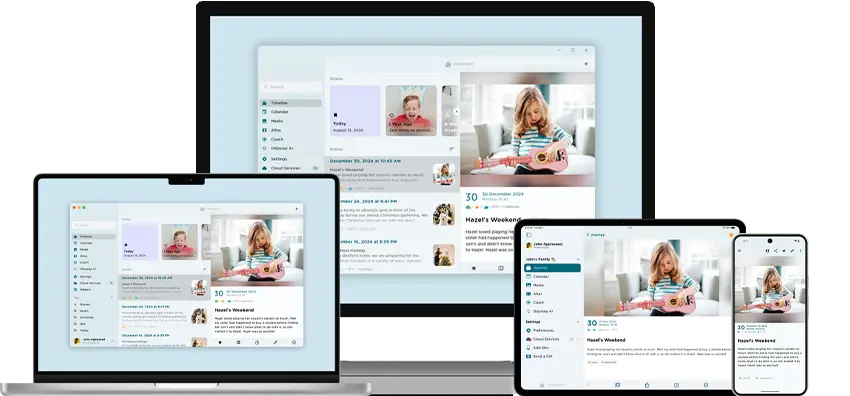Worry Less, and Live More - How to Live in the Present Moment
Our minds are constantly racing and we are thinking of the endless list of tasks on our plate at any given time. Learning how to soak in the present moment is key to worrying less and living more. Here's how you can practice mindfulness to live in the "now".
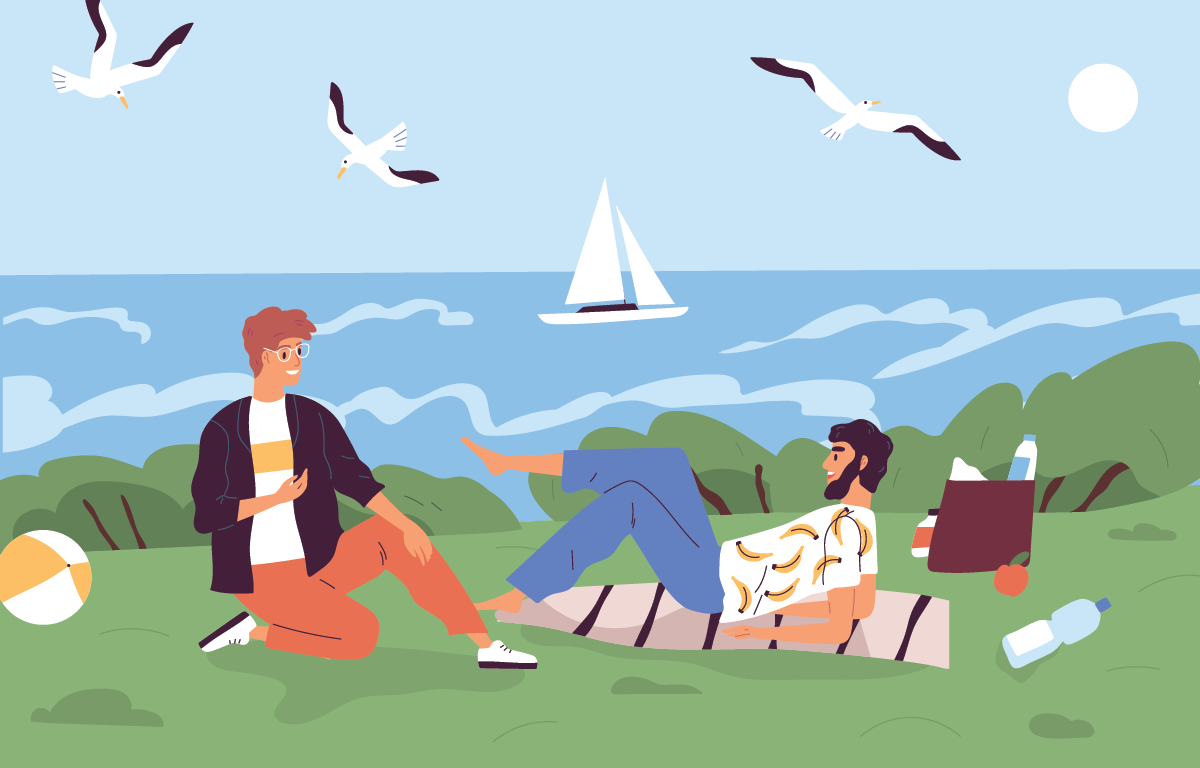
On most days, we are chasing the clock; trying to meet that 12 noon deadline, checking things off our to-do lists, scheduling catch-ups with friends and family, squeezing a workout into a free pocket of time and so on. For this, our minds and bodies tend to be gears that keep turning. We are juggling multiple responsibilities, wearing many hats, and trying to organize and prioritize our time for the endless list of things that need to be done.
We are often oscillating between what we have already done, and what needs to be done. Hardly are we immersed or consumed by our present moments. More than often, our thoughts and feelings are usually linked to past experiences or future plans than being pre-occupied with the "now" of our lives.
The root of living in the present moment lies in mindfulness. Practicing mindfulness allows you to truly be in the "here and now" of our lives, with full awareness of our experiences as they unfold. Adopting mindfulness does not happen overnight, it could mean an overhaul of how we approach our lives and whatever it entails; the good, the bad, and the in-betweens.
Read on to find out more about mindfulness and how it can help you worry less and live more in the present.

Living in the Present Moment
Mindfulness
While the core principles of mindfulness derive from ancient Eastern and Buddhist philosophies, what we know of mindfulness was introduced and developed by Jon Kabat-Zinn. He defined mindfulness to be the full awareness that derives from paying attention to and in the present with purpose, and going through experiences moment by moment without judgement.
Mindfulness thus encompasses being focused on, and intensely aware of your life as it unfolds in the present. Adopting mindfulness can involve practicing guided meditation, using focused breathing methods, journaling, using guided imagery to invoke reflection, and many other practices that are meant to relax and re-focus your body and mind to your present.
Mindfulness VS Escapism
Mindfulness can often get tangled with or misinterpreted as escapism; not being able to acknowledge and accept one's reality, and thus turning to momentary distractions or coping mechanisms to manage stressful situations. However, escapism is only effective short-term and would not benefit your state of mind in the long-run. It would in fact, be detrimental to your mental and emotional health. The short-term gratification from not effectively dealing with negative emotions and experiences does not equip you with the essential tools you would need to manage the above-mentioned in a healthy and productive way. Cultivating mindfulness in the way you approach and internalize life and its experiences would shape the way experiences shape you.

Photo by Patrick Schneider on Unsplash
Living in the Present Moment
Living in the present moment entails having an awareness of who you are, what you're feeling, where you are physically, and what are engaging in any given present situation or moment. How we approach life as it unfolds by the second greatly affects our state of mind and how experiences impact, and leave a lasting impression on us.
Being more connected to the present moment enhances positive attitudes and ultimately creates a more satisfying life. You take away as much as possible from all of life's experiences, people, and struggles.
Tips on Worrying Less, and Living More
How do you foster mindfulness and utilize the awareness that follows to fully experience and appreciate the present moment for what it is?
1) Physical connection
If you find yourself getting caught up and bogged down by emotions or thoughts, one way to re-centre and re-focus yourself is to find ways to physically connect to your present moment and the physical environment you're in.
Here are some physical activities you can engage in re-centre yourself :
- Take a walk along the beach, park, or any other external environment barefoot - Focus on sensory change in your feet, from usually having shoes on, and use this as a stimulus to clear you mind.
- Making yourself a hot or cold drink - Give yourself the space to clear your mind while preparing it and while drinking it slowly.
- Use your fingers to rub your temples for a couple of minutes - Re-direct frenzied energy into more calm and controlled energy with repeated circular movements on your temples Add an essential oil of your liking,
- Take a few, deep breaths – If you are feeling anxious, chances are that you may be taking in shorter, shallower, and more inconsistent breaths. Instead of regularly breathing in and out, concentrate on filling your chest and abdomen with air with every breath in for a full 5 seconds, and breathing out and releasing all the air with another full seconds with your lips pursed.
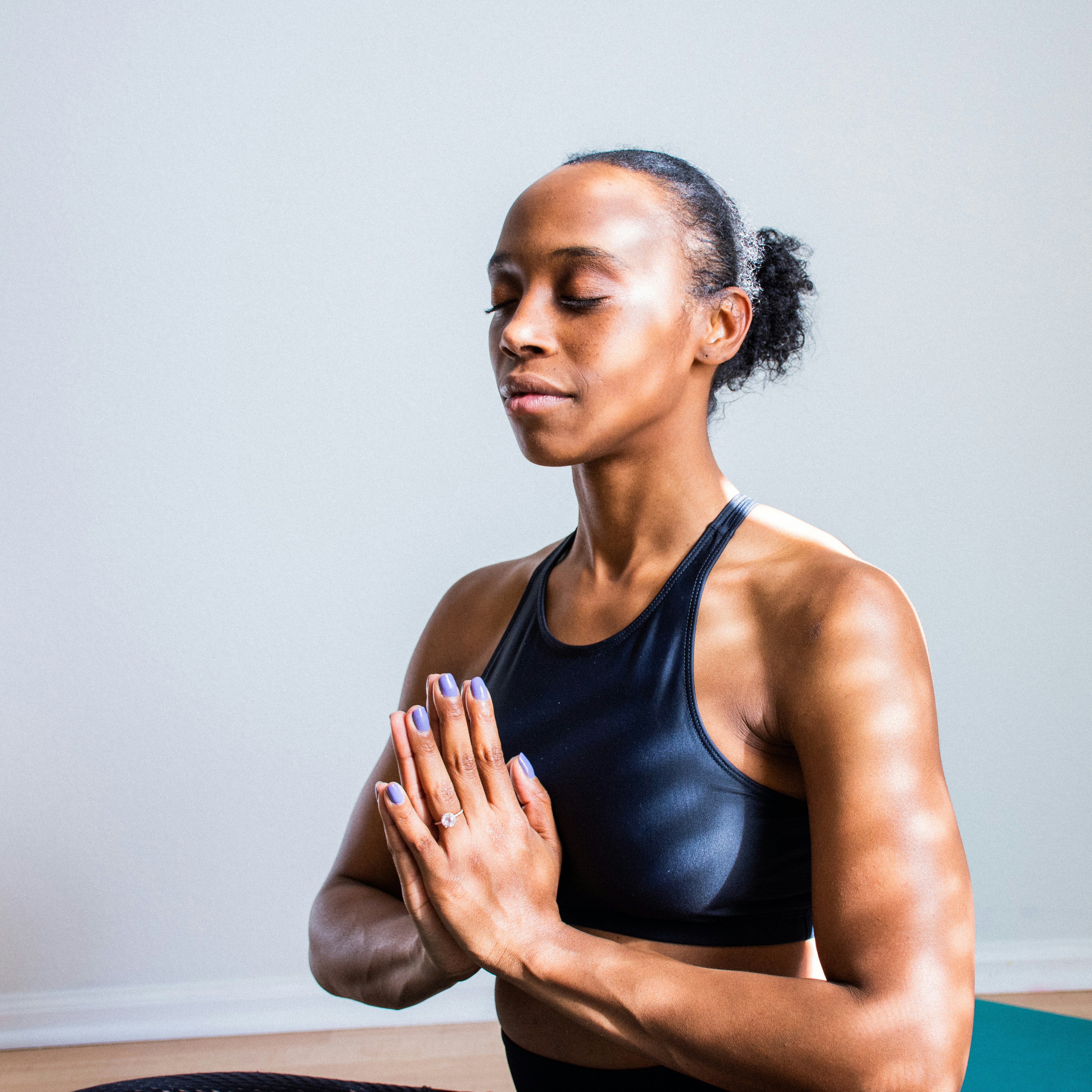
Photo by madison lavern on Unsplash
During whichever physical activity you choose to engage in, close your eyes, focus on the sounds and smells around you, the weight of your body, tactile sensations, and regulating your breathing. Shifting focus to physical sensations in your body and your physical environment gives you the chance to slow down and fully immerse yourself in the present moment.
2) Take a digital break
Stepping away from social media or other forms of technology and devices can also help with cultivating a more present-focused approach. The need to constantly check your phone or scroll through social media is more tempting than ever in today's world. You may even feel that checking social media allows you to stay up to date and connected with people around you. But the inverse; having a negative effect on the way you experience your present, is also highly probable.
Being glued to your devices or scrolling through social media can prevent you from being mindful of the things and people around you in any given moment. Devices and social media are often a distraction and impediment to you fully engaging in the present moment and soaking in as much as you can.

Photo by Timothy Hales Bennett on Unsplash
Here are some ways you can take time off your devices and social media to give yourself the space to enjoy your present :
- Schedule some time away from any screens - If you are required to be looking at screens for work or school throughout the day, set aside time in your calendar and an alarm to nudge yourself to head out for a short walk or to eat lunch away from your screen or desk.
- Switch your phone off at a specific time at the end of day - Switching off or turning on the "Do Not Disturb" mode on your devices 2 hours before heading to bed allows you the time and space to power down and engage in other activities without distracting alerts, notifications, or calls. During this time, you could journal, read, or have meaningful conversation with your loved ones to end the day off on a more involved and present note.
- Set no-device areas at home - Making it a point to not use your phone or laptop in specific areas at home, like your bedroom or kitchen, can help with keeping screens or social media from distracting or interfering with other activities that would require your full attention and involvement. The temptation to pick up your phone and scroll through social media while preparing a meal or reading a book in these areas can be completely removed this way.
3) Journal
Journaling is often used as a way to cultivate mindfulness. Setting a little bit of time aside each day; 15 minutes once you wake up in the morning or before going to bed at night, to pen down your thoughts about how the day went, or pulling out your journal to quickly pen down your feelings during a stressful situation or period, or making a list of things you are grateful for during setbacks or when you feel dejected every few days allows you to have a healthy outlet to express your feelings and to make sense of your thoughts.
If you're looking for a place to start journaling to help you through your emotions, there is no better place than Journey for that. Journey offers you multiple tools and aids that will guide you through keeping track of your emotional health.
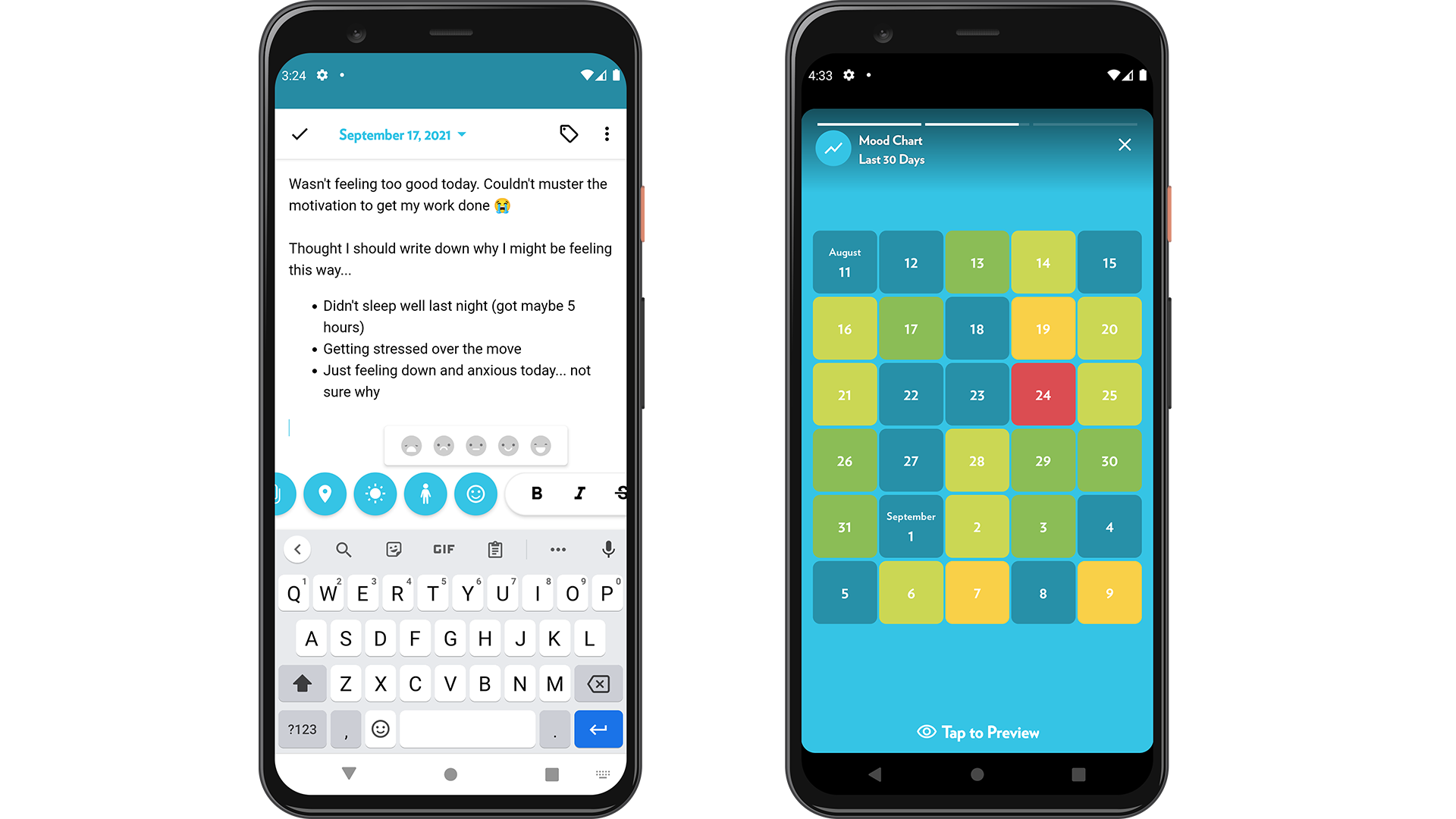
The power of mindful journaling often goes unnoticed. If you are unsure of how to start journaling, journaling prompts can help you delve deeper into yourself and your thoughts. Check out Journey Coach to give you a kick-start on your journaling habits by providing you with starting prompts to get writing and reflecting.
With Journey Coach, you can enroll in daily prompt programs of various topics, ranging from self-care to self-confidence, body positivity, self-discovery, and anger management.
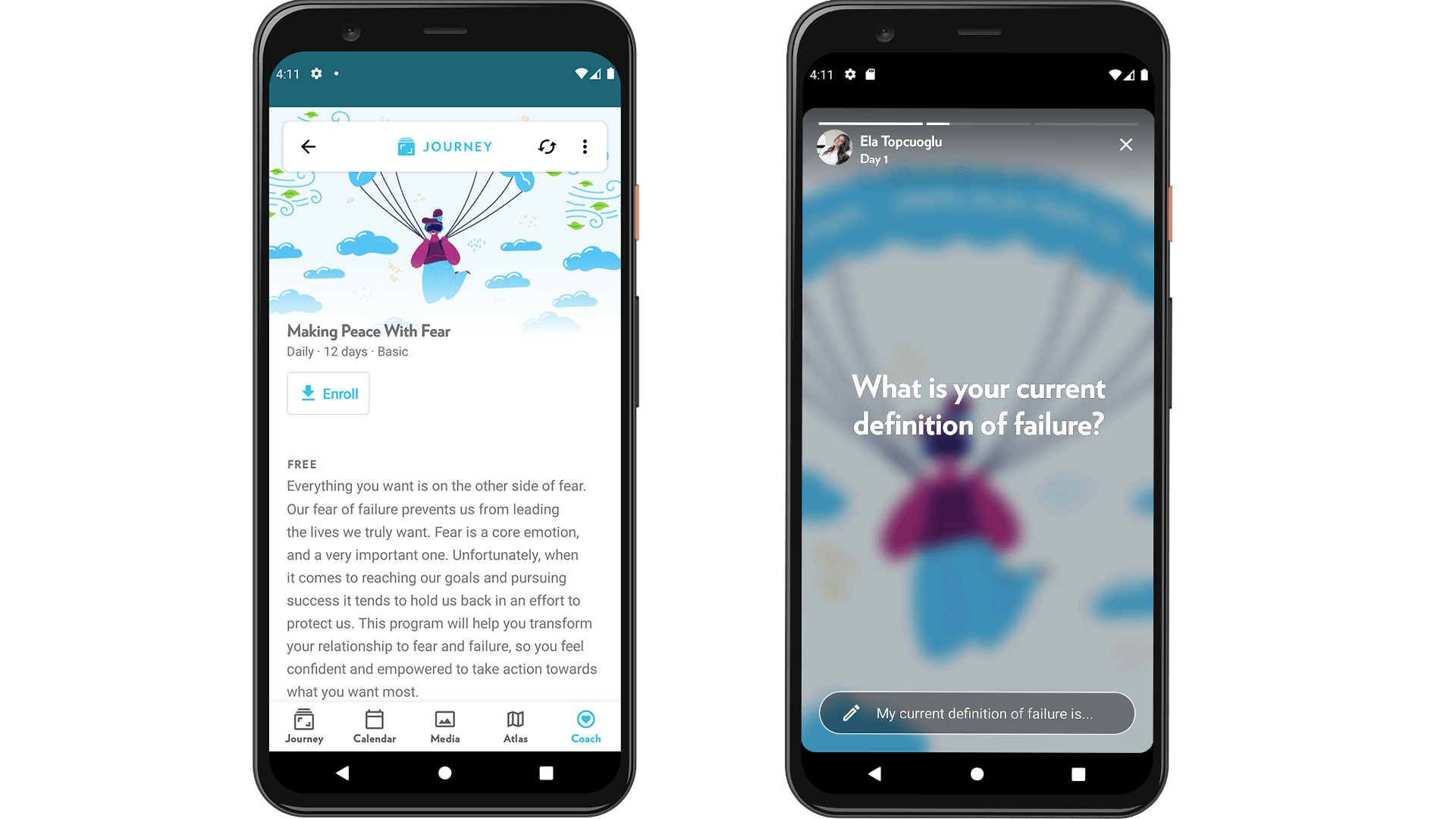
Here are some other journaling ideas to help you focus on the "here and now"s in your life :
- Make a gratitude list - Gratitude lists help to ground yourself during times you lack motivation or inspiration to push forward. They redirect your focus to what has worked and brought you satisfaction.
- Turn to journaling when faced with negative emotions or a stressful situation - The power of writing and the clarity it can bring can ease your stresses significantly. If your thoughts and emotions are all over the place or in disarray in your head, write in an attempt to piece the puzzle together. Seeing your thoughts or feelings in words in front of you can help you make sense of what you're experiencing and how to go about managing or resolving it.
- Morning brain dump - Once you get out of bed in the morning, jot down about a page of whatever comes to mind. This does not have to be coherent, creative, or even put-together. Jotting down your stream of consciousness helps with clearing your mind and starting the day with a clean slate. If there was anything that had been bothering you the previous day or had been left unresolved in your mind, take this chance to dump whatever you have been feeling before taking on a new day.
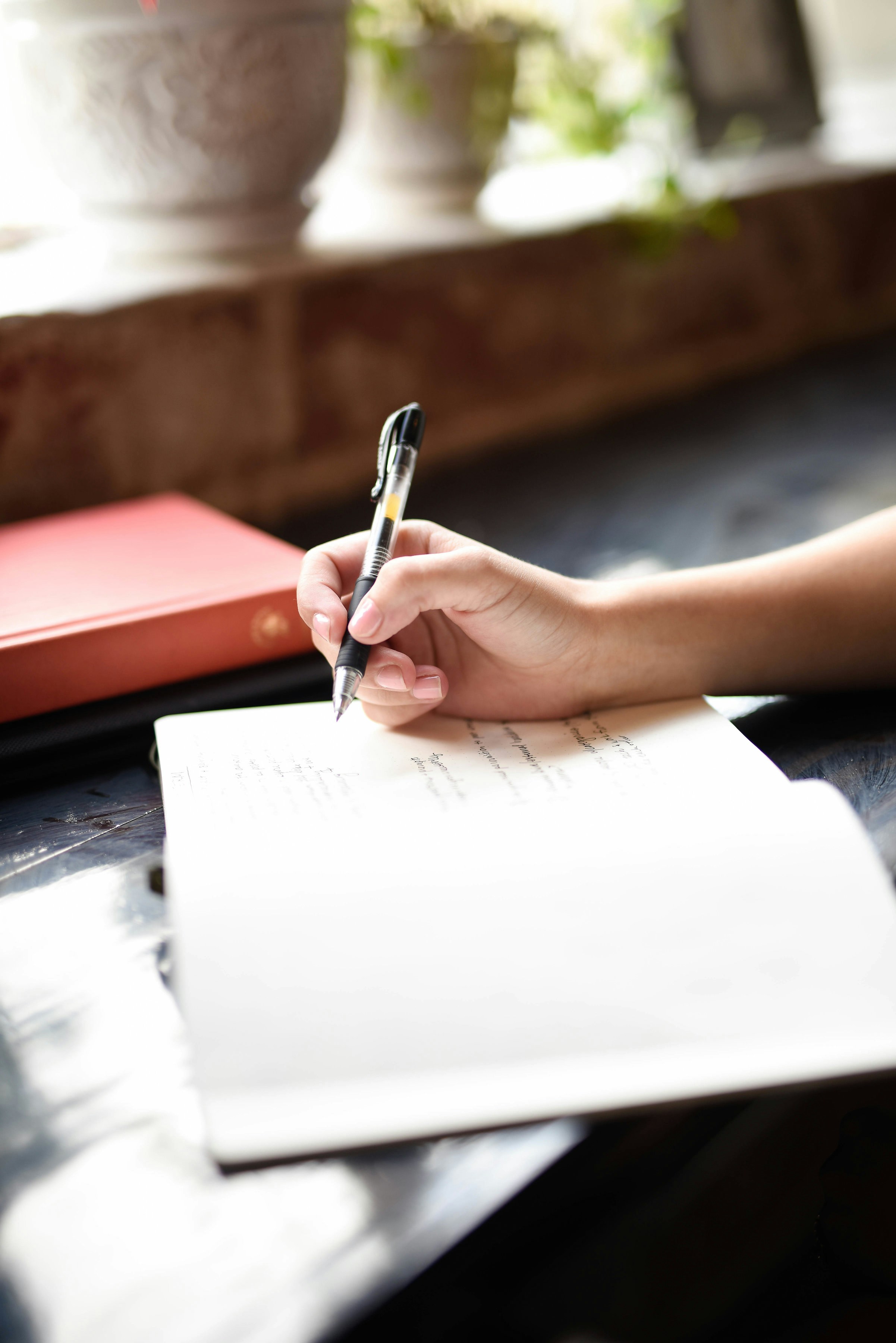
Photo by Hannah Olinger on Unsplash
Our minds wandering and jumping back and forth between what has already happened and the anxiety about what's in store for us in the future robs us of the chance to embrace our present. While we are preoccupied with an endless list of tasks to complete, or feeling anxious about a nearing deadline, we miss out on the joy of today. Practicing mindfulness and being aware of your entire being in the present moment gives you better control over how you feel, react, speak, and internalize situations. Prevent yourself from dwelling in the past, worry less about the future, and live more in the present!


